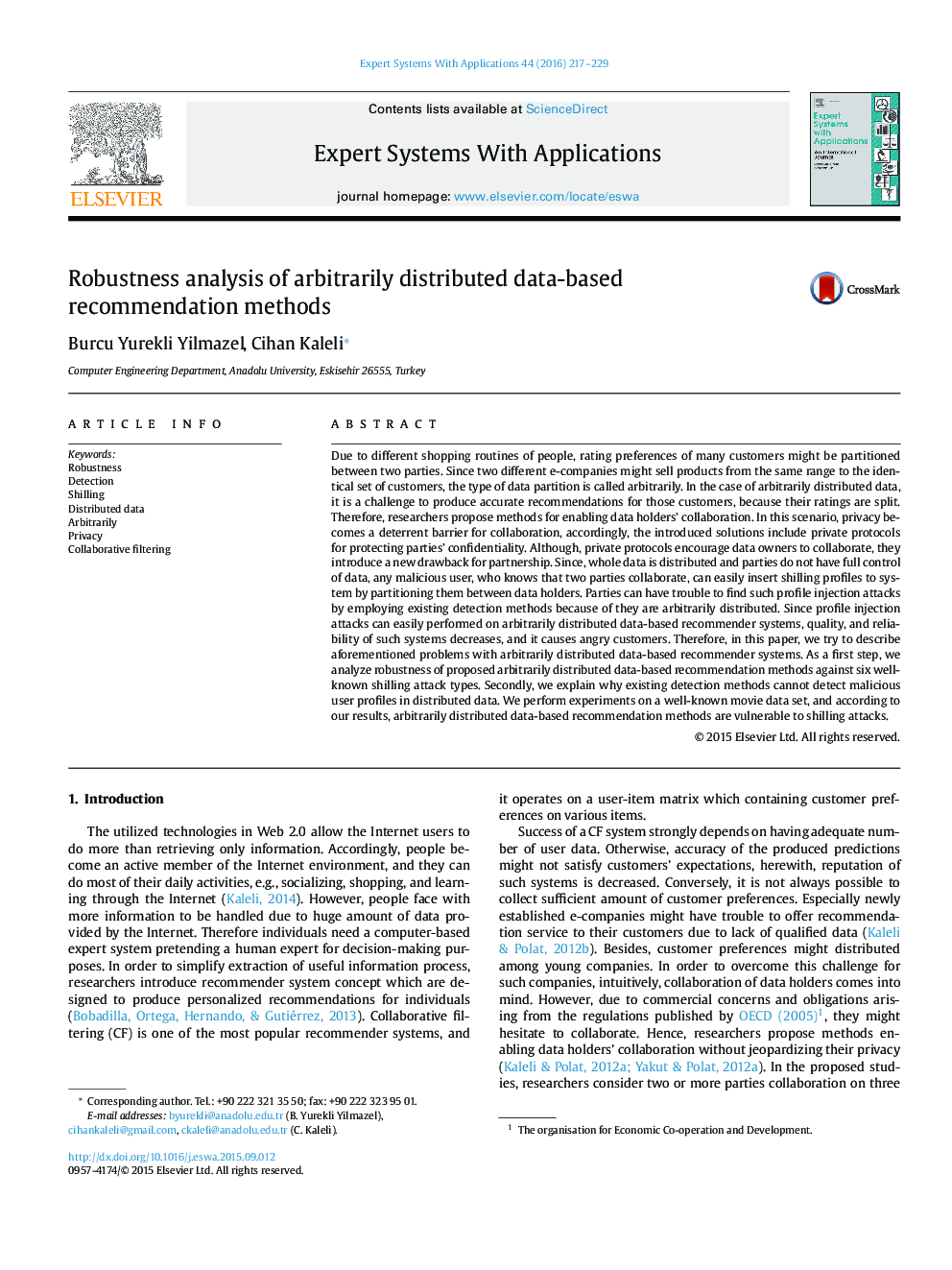| کد مقاله | کد نشریه | سال انتشار | مقاله انگلیسی | نسخه تمام متن |
|---|---|---|---|---|
| 382038 | 660723 | 2016 | 13 صفحه PDF | دانلود رایگان |
• Designing shilling attacks against private distributed CF schemes.
• Analyzing robustness of existing private distributed CF schemes.
• Discussing why existing detection methods cannot be used in private distributed CF.
• A new research direction is figured out.
Due to different shopping routines of people, rating preferences of many customers might be partitioned between two parties. Since two different e-companies might sell products from the same range to the identical set of customers, the type of data partition is called arbitrarily. In the case of arbitrarily distributed data, it is a challenge to produce accurate recommendations for those customers, because their ratings are split. Therefore, researchers propose methods for enabling data holders’ collaboration. In this scenario, privacy becomes a deterrent barrier for collaboration, accordingly, the introduced solutions include private protocols for protecting parties’ confidentiality. Although, private protocols encourage data owners to collaborate, they introduce a new drawback for partnership. Since, whole data is distributed and parties do not have full control of data, any malicious user, who knows that two parties collaborate, can easily insert shilling profiles to system by partitioning them between data holders. Parties can have trouble to find such profile injection attacks by employing existing detection methods because of they are arbitrarily distributed. Since profile injection attacks can easily performed on arbitrarily distributed data-based recommender systems, quality, and reliability of such systems decreases, and it causes angry customers. Therefore, in this paper, we try to describe aforementioned problems with arbitrarily distributed data-based recommender systems. As a first step, we analyze robustness of proposed arbitrarily distributed data-based recommendation methods against six well-known shilling attack types. Secondly, we explain why existing detection methods cannot detect malicious user profiles in distributed data. We perform experiments on a well-known movie data set, and according to our results, arbitrarily distributed data-based recommendation methods are vulnerable to shilling attacks.
Journal: Expert Systems with Applications - Volume 44, February 2016, Pages 217–229
